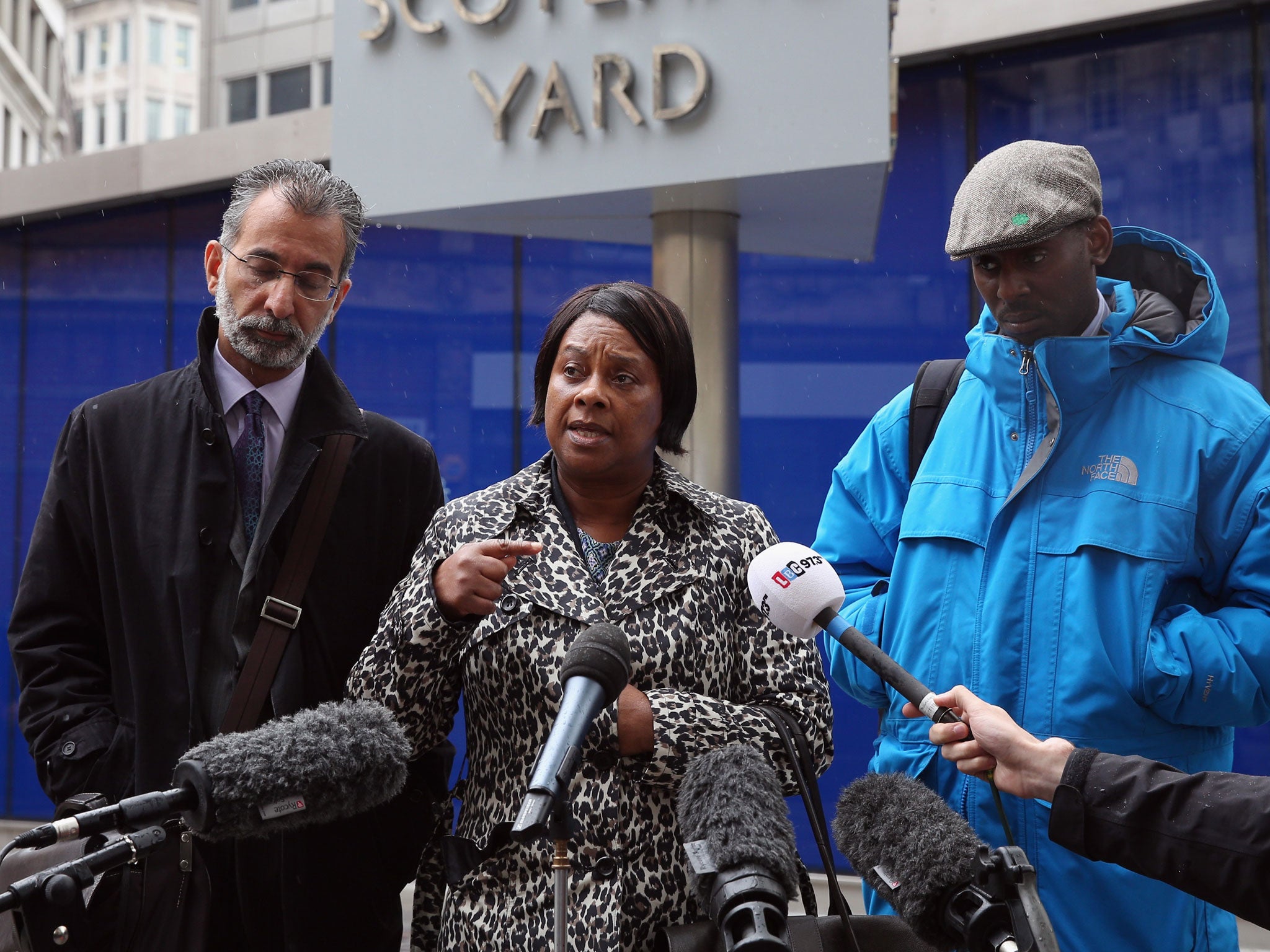To cure the Met's race bias, start at the top
The Stephen Lawrence case is still exposing flaws in police policy

Your support helps us to tell the story
From reproductive rights to climate change to Big Tech, The Independent is on the ground when the story is developing. Whether it's investigating the financials of Elon Musk's pro-Trump PAC or producing our latest documentary, 'The A Word', which shines a light on the American women fighting for reproductive rights, we know how important it is to parse out the facts from the messaging.
At such a critical moment in US history, we need reporters on the ground. Your donation allows us to keep sending journalists to speak to both sides of the story.
The Independent is trusted by Americans across the entire political spectrum. And unlike many other quality news outlets, we choose not to lock Americans out of our reporting and analysis with paywalls. We believe quality journalism should be available to everyone, paid for by those who can afford it.
Your support makes all the difference.I once met Doreen Lawrence in the toilets at the British Museum. We exchanged smiles at the wash basins. Her eyes were laden with the palpable pain of a grieving mother. A mother whose son, Stephen, was murdered by a gang of racist thugs and whose family was denied justice for 20 years by a racist police service. Last week, the Lawrence family learned that the Metropolitan Police had allegedly authorised an undercover operation in the mid-Nineties to smear the family and undermine their quest for justice.
In the wake of Stephen's murder, the Macpherson report found the Met to be institutionally racist. The force introduced a series of awareness-training programmes, and progress was made. Tragically, this started to unravel when the anti-racism initiatives were sabotaged by an ostensibly unlikely source: the Commission for Racial Equality (CRE). This was amalgamated into the all-encompassing, equally inept, Equality and Human Rights Commission – but not before Trevor Phillips, who then chaired the CRE, had told the Met's board it was time to forget about institutional racism. It went downhill from there.
Six years ago, the Met realised it couldn't fulfil its primary objective, to "make London safer", unless it could attract a workforce that reflected one of the world's most multicultural cities. With almost 40 per cent of London's population being black or minority ethnic (BME), a predominantly white, male police service could not connect with the diverse community it purported to serve.
The Met instigated positive action for BME candidates (as opposed to positive discrimination) at recruitment level. It failed because black candidates were expected to fit in with the established culture.This culture disseminates from the top, and that's where change must start – otherwise the Met will continue to lose black officers.
The Channel 4 Dispatches programme that exposed the Met's alleged attempt to smear the Lawrence family also uncovered a callous contempt for women. One described her experience at the hands of an undercover officer as being "raped by the state". The Met is unsustainable without the confidence and respect of its community, 50 per cent of which is female.
This crisis requires a cultural overhaul so that those who make the decisions are representative of the people over whom they wield so much power. With an elite group of only eight, the Met leadership should recruit senior women and BMEs from its own non-police staff, as well as tapping into the talent in the civil service, where women and minorities are better represented. There are no more get-out-of-jail-free cards for the police. The public has run out of patience.
Join our commenting forum
Join thought-provoking conversations, follow other Independent readers and see their replies
Comments